









Our weekly mobile farmer’s market selling fresh, local, affordable fruits and vegetables on a sliding scale. 50% off with SNAP/EBT
HIGHLAND PARK SENIOR APARTMENTS
1221 E Brookland Park Blvd 11:00 – 12:30PM
VCU MASSEY CANCER CENTER
1001 E Leigh Street 10:00AM – 12:00PM (for patients and families)
BON SECOURS CAREA-VAN RAMSEY MEMORIAL UMC
5900 Hull Street Rd N 10:00am – 11:30pm
WINCHESTER GREENS
2700 Bensley Commons Blvd 11:30 – 1:00pm
RVA BLACK FARMERS MARKET
DOMINION PLACE SENIOR APARTMENTS
1025 W Grace Street 1:30 – 3:00PM
BON SECOURS SARAH GARLAND JONES CENTER
2600 Nine Mile Rd 12:30 – 2:00PM
BROAD ROCK PUBLIC LIBRARY
4820 Old Warwick Rd 11:00am – 12:30pm
BROAD ROCK ELEMENTARY SCHOOL
4615 Ferguson Lane 2:00pm – 3:30pm
BHC LINCOLN MEWS APARTMENTS 4101 North Ave 4:00 – 6:00PM
MANCHESTER YMCA 7540 Hull Street 4:00 – 6:00pm
STONEWALL SENIOR APARTMENTS 1920 Stonewall Ave 1:00 – 2:30pm
NEIGHBORHOOD RESOURCE CENTER (FULTON) 1519 Williamsburg Rd 4:00 – 6:00pm


2nd & 4th Sunday 1311 Westwood Ave 11:00AM - 3:00PM JUNE 8TH & 22ND
13TH & 27TH
*No markets : Thursday, June 19, Friday, July 4, Saturday, July 5, Monday, July 28- Thursday, July 31, Friday, August 1


When I think of harmonious living, I think of peace. Not the kind that comes only from quiet or calm, but the kind that comes from being in alignment—with yourself, your family, your friends and the world around you.
The world feels loud and chaotic right now and harmony is something we have to choose on purpose. It shows up in how we treat people, how we care for our bodies, how we speak to our children and how we respond when things don’t go as planned. It’s not about perfection. It’s about presence.
To live in harmony is to give ourselves permission to slow down and listen—to what we need, to what others are trying to say and to the rhythms of nature that guide us. It’s in the little things: making time for a walk outside, cooking a nourishing meal, turning off the noise and tuning into what matters.
This month’s issue is filled with inspiration to help you find more balance and connection in your everyday life. From bodywork and whole-body alignment to cultivating resilience and finding your way through hard seasons, we’ve gathered stories that meet you where you are and gently invite you back to center.
We’re all navigating this life together—each of us doing the best we can to create peace in our homes, our bodies and our hearts. My hope is that this issue reminds you that harmony isn’t out of reach. It’s already here, waiting for you in the moments you choose to return to yourself.
Wishing you a soft, spacious and harmonious summer.
Regina

Publisher Regina Hall Rudolph
Editors Tammie Jones Randy Kambic Martin Miron
Design & Production Patrick Floresca
US
12220 Chattanooga Plaza, Suite 122 Midlothian, VA 23112 804-495-0325
Regina@NARichmond.com NARichmond.com

Natural Awakenings Richmond
Facebook is a registered trademark of Facebook, Inc.
SUBSCRIPTIONS
Subscriptions are available by sending $12 (for 6 issues) to the above address.
CEO Kimberly B. Whittle
COO Michael Bevilacqua
CMO Vee Banionis
Sr. VP Operations Brian Stenzler, DC
National Editor Sandra Yeyati
Editor Brooke Goode
Copy Editor Melanie Rankin
Print Production Specialist Kevin Rankin
Design Director Agnes Mazeikaite
Production Flip180
Customer Service Dani Bucad
US
Natural Awakenings Publishing Corporation 350 Main Street, Suite 9B Bedminster, NJ 07921 Ph: 239-206-2000
NaturalAwakenings@KnoWEwell.com
© 2025 by Natural Awakenings. All rights reserved. Although some parts of this publication may be reproduced and reprinted, we require that prior permission be obtained in writing. Natural Awakenings is a free publication distributed locally and is supported by our advertisers. Please call to find a location near you or if you would like copies placed at your business. We do not necessarily endorse the views expressed in the articles and advertisements, nor are we responsible for the products and services advertised. Check with a healthcare professional regarding the appropriate use of any treatment.



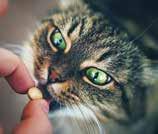


The Richmond Community is raising funds and awareness for pediatric cancer from 10 a.m. to noon, August 30, at William Byrd Park/Swan Lake. There will be food trucks, yard games and other family-friendly activities to rally the community around this important cause.
Ahead of the walk, participants will have access to a personal fundraising page to share with family, friends, coworkers and more. Every dollar raised supports the most promising research for children’s cancer.
Attendees can meet with the Massey Cancer Center team members and connect with resources that include cancer screening guidelines and information; cancer patient navigators to assist with barriers to care; “We Can Eat Well” cost-saving, healthy shopping strategies, recipe planning, and more; and “We Can Quit,” a free smoking cessation program connecting people with trained quit coaches to make a plan to quit smoking.
Location: 2201 Shields Lake Dr., Richmond. For more information, call 804-628-0896, email EngageMassey@vcu.edu or visit Tinyurl. com/2005RichmondCureSearch.
Twisted Carrot Farm will present a collaborative Summer Madness 70’s Market from 11 a.m. to 3 p.m., August 17, at Lakeside RVA, full of goodies crafted by local makers. There will be food truck, local treats and drinks on hand. A craft workshop will allow participants to create something special of their own.

Other neighbors surrounding the Lakeside Farmers Market include Final Gravity Brewing, Killa Dillas, JuJuBee’s, Twig, RVA Antiques, Lakeside BBQ, SB’s Lakeside Love Shack and many more.
Admission is free (no pets). Location: 6110 Lakeside Ave., Richmond.

Healing Circle Counseling is holding an open house from 5 to 7 p.m., August 28, for healthcare professionals, current clients and the public to connect with their compassionate and experienced medication management providers and learn more about the integrative approach to mental health care. Attendees can meet the team, tour the welcoming space and discover how their medication management services complement therapy and other supportive care.
Julie Smyser, PMHNP-BC, says, “Healing Circle Counseling values collaboration and is committed to strengthening the network of care available in our community. Join us as we build connections and share our mission to empower our community in their healing through heart-centered, evidence-based, compassionate care.”
Healing Circle works with individuals 16 and older to address a range of mental health concerns including anxiety, depression, trauma, ADHD and more. Light refreshments will be available.
Location: 2819 N. Parham Rd., Ste. 130, Richmond. RSVP at SummerOpenHouseHCC.eventbrite.com.

Maymont, the 100-acre green space in the heart of Richmond, is inviting people to share their favorite “Maymont Moments” to mark its 100th anniversary as a public park. With gorgeous gardens, a nature center, farm animals and a mansion full of beautiful furnishings, it has become a favorite place to learn, explore and celebrate life’s meaningful moments. Everyone is welcome to be a part of a new oral history campaign by sharing their memories of Maymont with an easy-to-use oral history portal, accessible any time, any place, by smartphone or computer.
It is easy to share a recollection by visiting and submitting text, photos or a simple video recording of someone telling a story. If someone has multiple stories to share, they are welcome to visit the portal again and again. The stories gathered will become a part of Maymont’s archives and may be used for research or promotion in support of the 100th anniversary celebrations in 2026.
Record a moment at Maymont.org/moments. For more information, call Melissa Abernathy at 804-358-7166, ext. 315.
In June, a large-scale study by Tufts University sought to determine the health benefits of caffeinated and decaffeinated coffee with and without the addition of sugar and saturated fat. The results published in The Journal of Nutrition suggest that drinking a lowto-moderate amount of caffeinated coffee daily lowers the risk of all-cause mortality; however, the benefit drops when an overabundance of sugar and saturated fat are added.
The researchers analyzed data from the National Health and Nutrition Examination Survey conducted between 1999 and 2018 involving more than 46,000 American adults. Individuals that consumed one to three cups every day were about 15 percent less likely to die in the next nine to 11 years compared to those that did not drink coffee at all. This benefit was negated for those that added more than half a teaspoon of sugar, one tablespoon of half-and-half, or three-and-a-half tablespoons of whole milk. Drinking decaffeinated coffee was not associated with healthy aging.

Menopause, which occurs at the end of a woman’s reproductive years, brings about changes in body composition and heightened health risks, including bone density loss, insulin resistance and an elevated propensity for cardiovascular disease. Notably, women that naturally enter menopause after age 55 have better health outcomes and a longer lifespan than those experiencing earlier menopause. Researchers and industry stakeholders are actively investigating ways to postpone its onset.
Yale University has devised an experimental procedure originally developed to preserve fertility for women undergoing cancer treatments. It involves surgically removing the outermost layer of the ovary, which contains hundreds of thousands of immature eggs, when a woman is in her late 30s. The tissues are cryogenically preserved for reimplantation years later as menopause approaches.
Columbia University is studying how to delay ovarian aging through the administration of low doses of an immunosuppressant drug, thus inhibiting a cellular pathway implicated in the aging process. Gameto, a biotechnology company dedicated to advancing treatment options for women, is conducting animal testing on engineered young ovarian support cells derived from stem cells. Celmatix Therapeutics is working on a drug designed to slow ovarian reserve depletion. Other researchers are advancing senolytic drugs engineered to selectively target and eliminate old, damaged cells.



The U.S. Centers for Disease Control and Prevention estimates that antimicrobial-resistant infections affect more than 2.8 million Americans annually, resulting in more than 35,000 deaths. These “superbugs” have developed the ability to resist medicines used to eradicate them, including antibiotics, antivirals, antifungals and antiparasitics.
In 2019, a systematic review proposed fecal microbiota transplantation (FMT) as a potential strategy for the decolonization of multidrug-resistant microorganisms (MDRO), as well as for the prevention of recurring MDRO infections. The researchers suggested that the implantation of good bacteria could restore normal gut microbiota, giving patients the ability to fight off resistant infections without need for other medical interventions.
A small, randomized trial in the United Kingdom recently tested the feasibility, safety and effectiveness of FMT delivered in capsule form. Among the subjects with invasive infections, 20 received FMT capsules, while 21 were part of the placebo group. The findings published in the July issue of the Journal of Infection indicated that encapsulated FMT was safe, well-tolerated and effective in colonizing the gut with healthy bacteria and eliminating superbugs. This study establishes the groundwork for a larger-scale investigation.

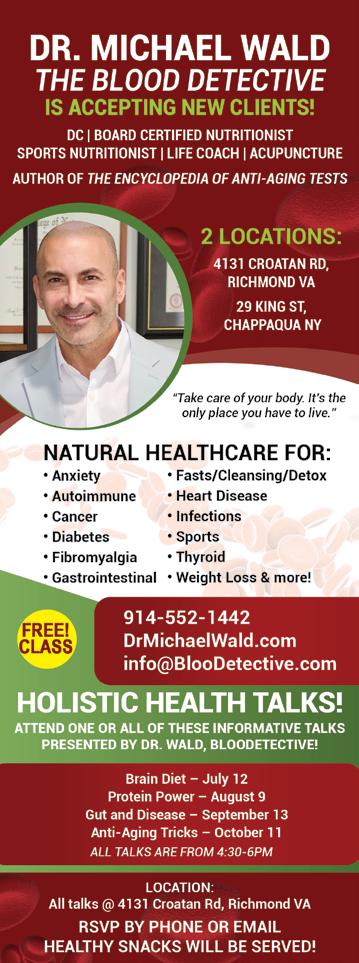
As many vehicles advance toward automation, passengers are presented with a range of new possibilities. Without a human driver, the car’s interior can be transformed to cater to the desires of the traveler with entertainment, media and digital connections seamlessly integrated into the vehicle’s ecosystem. Routes can be customized to optimize the journey, ranging from the quickest to the offbeat, with the ability to identify interesting and historically significant landmarks, locations, features and objects along the way.
In the car of the future, integrated artificial intelligence assists in planning scenic detours and dining experiences. Because the vehicle drives itself, enhanced lie-flat seating that incorporates massage and optimal body positioning ensures passengers arrive at their destination feeling well-rested. High-quality audio and video systems, coupled with atomizers that release the occupants’ favorite aromatherapy scent, provide an opportunity to enhance the overall sense of well-being. Biometric sensors monitor heart rate and stress levels, prompting relaxation or meditative activities. Companies such as Cadillac and BMW are already working to make these concepts a reality.

Julee Herdt, an award-winning architect, inventor and professor of architecture at the University of Colorado, has developed a range of high-performance, sustainable building materials called BioSIPs. Herdt’s technology enables the construction of structural panels, beams, interior partitions and furniture from paper, agricultural and bovine waste, as well as unwanted biomass such as hemp, wood and aromatic flowers, eliminating the need for synthetic binders or toxic resins. She has also developed insulation made from mushrooms that bonds to the BioSIP products.
These building materials are fully renewable, repulpable and recyclable. In a full-scale test, a solar home constructed with BioSIP
Perfluoroalkyl and polyfluoroalkyl substances (PFAS), commonly referred to as forever chemicals, have been linked to a number of health concerns. In April 2024, the U.S. Environmental Protection Agency labeled a specific PFAS known as perfluorooctane sulfonic acid (PFOS) and its salts and isomers as hazardous chemicals.
Scientists from the UK’s University of Oxford and Colorado State University have developed a novel method for both destroying PFAS and reusing some of their elements in new products. Their method, published in the journal Nature, involves reacting PFAS with potassium phosphate salts and then grinding the PFAS and salts together using ball bearings to break the carbon-fluorine bonds. This process facilitates the reuse of the fluorine content in the manufacture of medicines and other products.

products outperformed standard and sustainably designed solar homes in terms of energy efficiency, environmental standards and occupant comfort.

Baking soda (sodium bicarbonate) is a versatile and economical household cleaner and personal care product that offers numerous benefits. Its non-toxic and biodegradable properties make it an environmentally friendly choice.
• Kitchen Surfaces: Sprinkle on a damp sponge to clean countertops, sinks and greasy stovetops. Adding a few drops of tea tree, lemongrass, peppermint or orange essential oil will enhance the antibacterial properties.
• Pots and Pans: Use as a gentle abrasive to scrub pots and pans—even stainless steel.
• Drains: Pour half a cup of baking soda followed by half a cup of white vinegar down the drain. Allow it to fizz, then rinse with hot water. This is not a substitute for clearing clogs.
• Laundry Booster: Add half a cup to a load of laundry to soften the water, boost detergent effectiveness and neutralize odors. This natural solution is safe to use with baby items.


• Bathroom Fixtures and Surfaces: Mix an equal amount of baking soda and water or vinegar to form a paste for scrubbing sinks, tubs, tile and grout. For a deeper clean, combine with Castile soap instead of water or vinegar.
• Toilets: Use as a powdered cleanser, adding a few drops of a germ-fighting essential oil such as lavender, tea tree or lemon.
• Carpets: Mix a cup of baking soda with a few drops of geranium, lavender or ylang ylang essential oil and sprinkle it evenly over the carpet. After half an hour, vacuum thoroughly.
• Natural Deodorizer: Place an open box in the refrigerator to keep it smelling fresh. Sprinkling baking soda in garbage cans, shoes or gym bags can help eliminate unpleasant odors.
• Produce Cleaner: Mix one teaspoon of baking soda per two cups of cold water and soak strawberries or other produce for 12 to15 minutes. Gently rub the fruit or vegetables, then rinse thoroughly with clean water and pat dry. This method can reduce dirt, bacteria and some pesticide residues.
• Sterling Silver Polisher: Combine two tablespoons of lemon juice or distilled vinegar with two tablespoons of baking soda.
With a soft cloth, gently rub the mixture onto sterling silver items and rinse thoroughly. Allow more tarnished items to soak in the mixture for a few minutes before cleaning.
• Teeth Whitening: Sprinkle a small amount of baking soda on the palm of the hand, dip a damp toothbrush into the solution and brush as usual. This method should only be used sparingly, as baking soda can damage tooth enamel.
• Skin Relief: Add half a cup of baking soda to a bath to soothe skin irritation. This solution is beneficial for eczema, poison ivy and dermatitis.
• Hair Cleansing: Mix a small amount of baking soda with water to create a solution. Massage the mixture onto wet hair and rinse thoroughly. This shampoo alternative helps to reduce excess oil and buildup of styling products, restore pH levels, treat dandruff and lighten hair dye. It can also serve as a dry shampoo by simply combing it through dry hair. Long-term or excessive use is not recommended, as baking soda’s abrasive properties can cause split ends, irritate the scalp and strip hair of natural oils.

by Carrie Jackson
Harmony in our daily routine provides a sustainable and fulfilling rhythm. A life in balance accommodates ambition and rest, effort and ease, honoring our individual energy and purpose. Instead of pursuing future goals and equating success with monetary gain or accomplishments, we can learn to appreciate the present moment and align our choices with personal values. By shifting from a rigid, externally oriented idea of success to a more holistic, harmoniously driven approach, we can experience greater joy, purpose and authenticity.
In 2022, Yoli Maya Yeh, a yoga teacher, shiatsu therapist and educator whose work revolves around Indigenous preservation, healing arts and social justice, embarked on an adventure of global nomadism and worldschooling her now 13-year-old child. Their journeys have taken them to many countries, including Morocco, Italy, Malta and Senegal. Yeh asserts that her lifestyle was not the result of a single decision but rather the culmination of focus, willpower and the strength of those that have walked before her.
“While entrepreneurship flows through my veins, without a clear vision, a sense of purpose and a deep well of confidence, I would not be able to be this assertive and daring in my approach to how I want to fulfill my dreams. I could decide to play small and feel contracted in my body, but that was not the intuitive guidance I have come to trust,” Yeh explains. “My vision is a life where I can be in spaces of belonging, collaborating and problem solving, dreaming and world-building
our collective liberated future. In the present moment, I explore my inborn gifts and hone them to be of maximum service.”
She maintains that a path of development cannot be solely cerebral, sharing, “A traveling lifestyle provides me with a high level of changefulness in which I can cultivate growth and adaptation through constant new experiences that challenge me to navigate unknowns. We must bring the transformative process into the body through active restoration tools and meaningful engagement with self.”
Harmony and resistance are felt in the body, and tapping into those signals enables us to deeply connect with our true selves. As Yeh puts it, “Perpetual analysis in the mind disconnects us from the experience of resonance, thus distancing us from actual alignment. A daily centering practice that draws on a collage of breathwork, mantra and
meditative techniques allows us to hone our connection to the sensations in the body.”
As a respite from the demands of modern society, Yeh turns to yoga nidra, a yogic sleep meditation originating in South Asia, as well as other Indigenous wisdom traditions. “Living in the modern era presents us with contradictory factors,” she says. “We have more automation and digital support, while at the same time, we are cut off from our ancestral rejuvenation practices such as sacred dreaming, ritual and community celebration.”
Another valuable practice is rematriation, or “returning to the Sacred Mother”, which emphasizes the restoration of Indigenous knowledge and connection. “In this practice, we lay our tired bones down on the earth to rest and revive the ancestral wisdom that lives within. Like so many meditative and trance practices, one explores liminal


states of consciousness where the mind expands well beyond the confines of the awake, thinking mind and amplifies creativity and a sense of freedom,” Yeh explains. “To experience fulfillment in life, we need a recipe that combines resonance of expansion and a sense of belonging. Success is the embodied expression of this connection to self and collective at the same time.”
Brianna Wiest is the bestselling author of numerous books, including 101 Essays That Will Change the Way You Think, The Pivot Year and The Mountain Is You. Her personal reflections are derived from years of self-inquiry and meditation practice, and her writing emphasizes emotional intelligence and self-awareness as keys to meaningful success.
She notes that the conventional standard of success varies depending on an individual’s upbringing, network and environment. “There are ways in which society measures and corroborates a concept of success, and many people feel beholden to this definition. But this can become more defeating than motivating, as the idea of success is often divorced from the essence of what it should actually mean,” she says. “Success is effectiveness, but the question becomes: Effectiveness at what? Fulfillment is when we’re effective at something meaningful. It’s an internal gauge, rather than an external measure. Fulfillment is when we feel deep peace and inner satisfaction, regardless of how others may perceive our endeavors or pursuits.”
Shifting the focus away from the outcome, and more on our journey, is a practice that strengthens within the interplay of momentum and inertia. Wiest states, “The more we acknowledge and feel good about the progress
we’re making, the more inclined we feel to make more of it. Often, we use the inverse on ourselves: We try to focus on the ways in which we’re falling behind (or imagine that we are) so as to motivate ourselves to move forward. This usually just compounds the mindset that we are incapable, and it’s not worth the effort. The best way to become more of anything is first to find evidence of the ways in which you already are that thing.”
Wiest recommends striking a balance between ambition and rest by fine-tuning intuition and strengthening the ability to respond effectively. “There’s no right way to divide up your time, and everyone’s needs differ,” she points out. “Rather than waiting until you’re at the point of depletion to think about taking care of yourself, sit honestly with the question of where you’d like your bandwidth to expand and how your body and mind signal that it’s time to decompress. In the same way that you have to rest a muscle after exercising it for it to strengthen, repair and grow, the rest of the body works similarly. It’s part of the process, not antithetical to it.”
Reflective practices such as meditation and journaling can enable us to be more mindful and make decisions that align with our values, instead of acting impulsively. Wiest suggests looking at life from the perspective of our 90-year-old self and considering what we would have done differently. “Mindfulness is a way of both stilling the waters of the mind and calming the inner chaos, while at the same time, giving us the chance to pause between having a thought and a feeling and then immediately responding to it,” she says. “It’s that gap of time where we get to consciously decide how we will react that ultimately creates our personal freedom.”
Author, podcaster and co-founder of the Dharma Coaching Institute, Sahara Rose Ketabi helps people discover their soul’s purpose. “Your dharma is the big reason why you are here,” she explains. “It’s your sacred mission, your truth and the sacred intersection of your joy and the world’s needs. When you’re aligned with your dharma, life
begins to feel like a divine dance—yes, with challenges, but also with deep meaning. It’s not about being the best at something; it’s about being you, fully and unapologetically.”
Ketabi contends that the pursuit of success alone does not yield happiness; it is happiness that brings true success. “Success isn’t just about ticking boxes or climbing ladders. It’s about alignment,” she clarifies. “We can shift this mindset by tuning into our bodies, emotions and passions, asking, ‘Does this feel expansive? Does this nourish my soul?’ When your success is in service of your dharma, it feels sustainable, fulfilling and soul-led.”
Ketabi incorporates Ayurvedic wisdom into her teachings to help people tune into their own energy. “Ayurveda is the science of life, and your dharma is the reason you’re alive. They’re inherently connected. By understanding your dosha—vata, pitta or kapha—you understand your strengths, challenges and soul gifts,” she explains. “It’s not just about food or herbs; it’s about rhythm. If you’re a fiery pitta trying to force your purpose, you may burn out. A dreamy vata may need structure to bring ideas through. Ayurveda teaches you how to work with your energy, not against it, so your dharma can blossom naturally.”
Living as your most authentic self ultimately has a butterfly effect for making positive changes in the world. “When one person lives in their dharma, it shifts the field for everyone around them. It creates a ripple of remembrance,” says Ketabi. “I believe that your dharma is not just about you, but it’s about the impact you create through being you. It is not selfish to follow your joy; it’s necessary. When you do what you love, you become magnetic. You inspire others to stop settling, to heal and to rise. You become the permission slip they didn’t know they needed. Living your dharma is the highest form of spiritual activism.”
Carrie Jackson is a Chicago-based freelance writer and frequent contributor to Natural Awakenings. Connect at CarrieJacksonWrites.com.
by Megy Karydes
The spaces we call home hold untapped potential to become powerful allies in our pursuit of wellness and tranquility. Creating a truly restorative environment goes beyond incorporating organic cotton throws and essential oil diffusers. The secret lies in recognizing that homes are living entities rather than mechanical constructs for shelter.
The human eye instinctively gravitates toward the soft curves and organic forms found in natural settings. Social psychologist Erich Fromm coined the term biophilia to describe an intrinsic affinity between living things. In architecture, biophilic design aims to create living spaces that foster well-being through a connection with nature.
One way to mimic nature indoors is through the use of curves and organic shapes, according to Lauren Riddei, a wellness interior designer and founder of Haus Holistics, in Myrtle Beach, South Carolina. For instance, consider replacing angular coffee tables with round styles or swapping rectangular mirrors for curved versions.

Riddei recommends starting with one curved element at a time, making it “a goal that any new piece of art, furniture or accessory brought into the space has curves in them.” The recent trend toward rounded furniture reflects our innate craving for spaces where energy flows freely, unobstructed by sharp corners where it tends to get stuck.
Color psychology extends this natural approach beyond shapes. Rather than following fads, hues should be chosen based on current life needs, according to Lisa Morton, a holistic interior designer and founder of Pure Living With Lisa Morton. “Maybe the client doesn’t need calm. Maybe they’re in a rut and need revitalization, in which case they need oranges, yellows and pinks,” she advises, adding that if the primary objective is to create a soothing environment, blues, greens and creams should be considered.
Morton also recommends that homeowners follow the seasonal rhythms as a way to “remind our body of being outdoors even when we can’t be.” For example, during the fall and winter months she incorporates chunky rugs and throws crafted from natural fibers. As she explains, such textures resonate with the earth element of feng shui—the ancient Chinese practice of creating harmonious living spaces—thereby creating a sense of stability and grounding.
The Bagua Map, a feng shui blueprint for energy centers, charts a path for establishing harmony throughout the home. “The centermost area of your home connects to every other important energy center,” Morton asserts. “By lifting the energy of your center area, it affects every other part of your home.”
This intentional care radiates outward. Identifying the home’s center point (imagine a bird’s-eye view of the floor plan) and showering it with attention involves replacing burned-out bulbs, thoroughly vacuuming, fluffing pillows and adding thriving plants or fresh flowers. “If your whole home feels stuck and stagnant, and you do work on this living area, it’s going to radiate out,” she remarks.
According to Morton, the front door deserves equal attention, because in feng shui, it is associated with new opportunities and fresh
energy. “A lot of people don’t use their front door. They come and go through the garage,” she observes, recommending that people find ways to regularly use the front door— whether walking the dog or taking morning strolls—as a way to invite new, restorative energy into the home. Shaking out welcome mats, ensuring the smooth functioning of locks and adding seasonal wreaths all contribute to this goal.
Licensed therapist turned interior designer and author of Home Therapy Anita Yokota takes this intentional approach further with her concept of “core desire”. Rather than making design decisions first and seeing how they make inhabitants feel, she flips the process by asking, “How do you want to feel and be in this space? What relationships do you want to thrive here?” This therapeutic approach ensures that every choice serves deeper needs, rather than following external trends.
Another overlooked aspect of holistic home design is sound. While homeowners may obsess over visual elements, they often ignore how acoustic pollution affects well-being. “We are sensitive to loud noises and vibrations,” Riddei says. “We need an environment that won’t keep us on edge when we come home from a long day.” Her unconventional solution involves wind chimes tuned to the healing frequencies of 432 or 528 Hertz (Hz), which she asserts are associated with peace and love. This is particularly helpful for people that live on a noisy road.
Research published in the journal Health found that music tuned to the frequency of 528 Hz significantly reduced stress after only five minutes of listening. For those sensitive to auditory stimulation, Yokota suggests implementing additional insulation or sound-absorbing wall panels.
Megy Karydes is a Chicago-based writer and author of 50 Ways to More Calm, Less Stress.
by Marlaina Donato

Art historian Bernard Berenson once said, “I wish I could stand on a busy corner, hat in hand, and beg people to throw me all their wasted hours.” Although no one has an inexhaustible number of years on the planet, we don’t realize that life is flying by. Most of us seem to be in a hurry all the time, even when we don’t need to be.
Memories of our most cherished moments have become intangible phantoms. Snapshots, stored on smartphones and rarely printed, are lost in a blizzard of social media posts. Although we photograph everything—even what’s on our dinner plate—the full engagement of our senses is perennially postponed to an ambiguous later date when we “have more time”. Somehow, we have become spectators of our own lives, never quite living the moments our technology is preserving.
Consider the supplication of Roman poet Horace: Carpe diem! To seize the day is more than a feel-good motto. It can be a spiritual discipline. Unplugging from the compulsion to have a phone or camera in hand at
all times can be a wonderful starting point. Reserving one day each week to turn off our devices and become fully immersed in meals and social activities can help us shed our public personas and get back to who we truly are.
Choosing to speak in person or on the phone instead of texting can remind us that human voices spark deep, human connection, boosting the immune system and uplifting our mood. Face-to-face interactions remind us that we are valued and heard, and that we are capable of providing that crucial validation for others.
As our world spins into the age of artificial intelligence with so many exciting possibilities, we also want to ensure that what makes us human remains intact. Living fully and harmoniously is an invitation to cultivate authenticity, prioritize the present moment and inspire others by example. Seizing the day may truly be our greatest accomplishment.
Marlaina Donato is an author, visionary painter and composer. Connect at WildflowersAndWoodSmoke.com.
by Jordan Peschek, RN-BSN
Mental wellness is no longer considered a separate pillar of health; it is becoming deeply integrated into physical fitness routines across the country. As the discourse surrounding emotional and psychological well-being becomes more open and less stigmatized, there is a shift in how people approach exercise. Not only is fitness focused on building muscle and burning calories, but increasingly it is about fostering resilience, restoring balance and supporting the mind as well as the body.
This integration of mental wellness emphasizes practices such as breathwork, guided meditation, intentional recovery and nervous system regulation as core components of a comprehensive fitness regimen. For health-conscious individuals seeking vitality and longevity, this is a natural evolution of holistic living.
“The physical body reflects what is mindfully and energetically present,” shares Dawn Coleman, a certified personal trainer and life

transformation coach based in Cedarburg, Wisconsin. “Honoring the body’s physical well-being requires that we consider energetic pathways that allow the nurturing of the soul and mind, which, in turn, promotes physical fitness.”
Today’s approach goes beyond the endorphin rush of a workout. Wellness buffs are looking for fitness environments and tools that help calm the mind, process emotions and foster inner strength. Gyms and studios are responding by incorporating stress-relieving modalities into their offerings. It is not uncommon to find yoga classes ending with a 10-minute guided meditation or strength sessions that begin with focused breathwork. Even high-performance athletes are embracing these new tools, recognizing that mental clarity and nervous system regulation enhance both performance and recovery.
• Breathwork: According to Coleman, conscious breathing exercises help regulate the nervous system and lower cortisol, the body’s primary stress hormone. A 2023 meta-analysis published in the journal Nature found that breathwork may be effective for improving stress, anxiety and depressive symptoms. Techniques like box breathing, diaphragmatic breathing or alternate nostril breathing can be layered into warm-ups, cool-downs or standalone sessions.
• Meditation and Visualization: Whether it’s a guided meditation before sleep or a visualization practice to prepare for a race, meditation trains the brain for focus, reduces anxiety and enhances emotional resilience. Research published in Frontiers in Psychology affirms that tailored visualization improves athletic performance and establishes the mental toughness needed to achieve both long-term and short-term goals.
• Recovery Rituals: Recuperation is a vital part of training. Therapies involving infrared saunas, float tanks, cryotherapy and contrast baths support muscle repair while simultaneously calming the nervous system and promoting mental relaxation. A 2023 randomized crossover study of 20 basketball players, published in Biology of Sport, reported improvements in muscle recovery and reduced soreness when exercise was followed by an infrared sauna session. A peer-reviewed article in Medicine & Science in Sports & Exercise reported that exercisers that followed highintensity interval training with a one-hour floatation session experienced enhanced recovery from sore muscles and improved performance readiness.
• Tai Chi and Qigong: These mindful movement disciplines emphasize intention, awareness and breath, creating space for physical vitality and mental clarity.

The design of fitness spaces is evolving toward environments that promote wholeness and healing. Lighting and music are intentionally curated to create inviting atmospheres, while recovery lounges are incorporated for meditation or breathwork practices. This evolution has been particularly meaningful for women experiencing burnout, hormonal fluctuations or chronic stress.
Rather than pushing through fatigue or anxiety, individuals are adopting restorative practices that align with their physical needs. Many gyms, as well as yoga and Pilates studios, are offering supplemental therapies to support mental and physical fitness objectives. Sauna, red light and cold plunge therapies have become more accessible than ever.
Mental wellness integration is more than a trend; it is a redefinition of what it means to be fit, challenging the old “no pain, no gain” model and replacing it with a deeper, more sustainable approach to health.
This shift is being embraced not only because it feels good in the moment, but also because it supports long-term well-being. People are learning to treat their minds with the same care and intention as their muscles. By doing so, they are redefining strength, not as something visible, but as something profoundly felt—steady breathing, calm thoughts, inner peace. In a fast-paced world that often demands more and more, mental wellness integration offers a path toward greater equilibrium, presence and joy throughout the journey.
Jordan Peschek has a background in personal training, yoga instruction and mental health nursing. She publishes the Milwaukee and Twin Cities editions of Natural Awakenings.

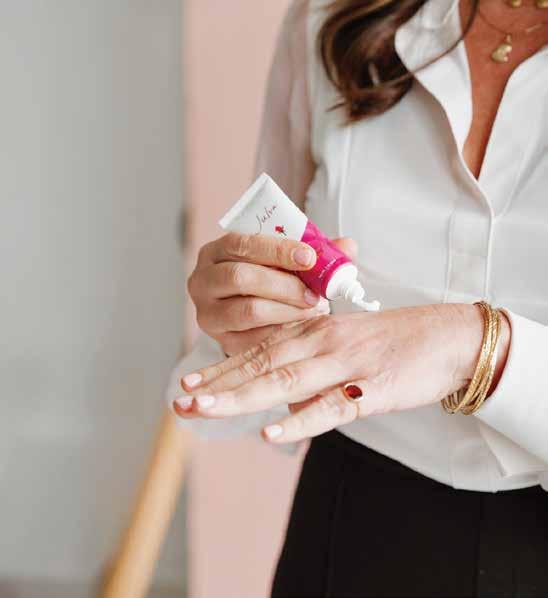

by Marlaina Donato
From the haunting drone of an Australian didgeridoo to the steady heartbeat of a frame drum, cultures around the world have used sound to facilitate healing for thousands of years. In modern times, scientific research corroborates what native cultures have intuitively known: Sound-based vibration and resonance affect our body at the cellular level.
“As you consider the efficacy of sound vibration in the body, it is important to understand that our cells, organs, bones, tissue and cerebral spinal fluid are all composed of water. We are more than 70 percent water, and sound travels four times faster in water than in air. The human body is a natural resonator for sound,” says Ellen F. Franklin, Ph.D., co-founder and chief executive officer of the Acutonics Institute of Integrative Medicine, in Llano, New Mexico, who draws from East Asian medicine, Western science, psychology, physics and music theory to provide sound vibration therapies.
The use of Tibetan or crystal singing bowls, percussion instruments, calibrated tuning forks, gongs, cymbals, chimes, flutes and

vocalization affects brain waves by inducing parasympathetic relaxation and modulating pain perception. Directly impacting the vagus nerve, strategic sound applications can alleviate symptoms of depression, anxiety, chronic pain and trauma response, and can be useful for those suffering from post-traumatic stress disorder. Improved sleep quality, heightened creativity and inner calm are additional potential benefits.
Histotripsy, a new U.S. Food and Drug Administration-approved technology, employs high-pitched, focused ultrasound energy to break up liver tumors. Similarly, lithotripsy uses ultrasonic shock waves to eliminate kidney stones. Acoustic engineering has also emerged as a promising tool for diagnosis, encompassing brain seizures, heart disease modeling and medication screening.
According to Franklin, co-author of Acutonics From Galaxies to Cells: Planetary Science, Harmony and Medicine, the vagus nerve can be activated via the application of calibrated tuning forks crafted from aerospace-grade metal to key acupuncture points along the body’s meridians (energy pathways). “A number of studies have shown that the vagus nerve is particularly sensitive to sound vibration. DU 20, a key acupoint, addresses stress and trauma, as it can be used to help people wake up the brain and open the mind, and is often used for cognitive disorders and many stress-related symptoms,” she explains, adding that this work is currently being used in clinical settings for patients that do not respond effectively to conventional methods or exhibit drug resistance.
The rhythmic patterns of electrical activity in the brain produce distinct frequencies that are associated with mental states, emotions and cognitive functions. Throughout our waking and sleeping life, the brain shifts through gamma, beta, alpha, theta and delta states. When we transition to the alpha state using sound therapies like drumming, binaural beats, singing bowls or gongs, we feel calmer and more joyful. Either by playing or listening, therapeutic hand drumming synchronizes the left and right hemispheres of the brain and may be valuable in augmenting cognitive function, retraining the brain after a stroke or improving the management of conditions such as autism, Alzheimer’s disease and attention-deficit hyperactivity disorder.
“The frame drum can significantly influence brain waves, primarily through a process called rhythmic entrainment. The pulses of the drum, especially when played at specific tempos, can induce the brain to synchronize with these rhythms, leading to shifts in brain wave patterns,” says Michael McCullough, a sound healing practitioner at The Healing Sanctuary, in West Chester, Pennsylvania. “Using the perfect fifth, or a 128 Hertz, tuning fork can also

boost the body’s production of nitric oxide and balance the autonomic nervous system, releasing antibacterials, antivirals and free radicals on a microscopic level.”
Incorporating therapeutic sound modalities in our healing regimens can broaden the potential for physical and mental well-being. McCullough recommends trying a group sound bath, which is a meditative session where participants lie on a yoga mat or blanket and listen to a diverse range of sounds. He acknowledges that private sessions with a skilled practitioner may also be beneficial because they can be tailored to individual needs and provide a more comprehensive experience.
While Franklin also recommends such sound healing experiences, she cautions, “Frequencies can be used to promote health and wellbeing, but we always advise people to educate themselves. When working with sound medicine therapeutics, less is more.” Excessive sound therapy—too much or too often—could aggravate the nervous system in some individuals, causing unpleasant side effects such as dizziness, fatigue, disorientation or headaches.
Marlaina Donato is an author, musician and painter. Connect at WildflowersAndWoodSmoke.com.

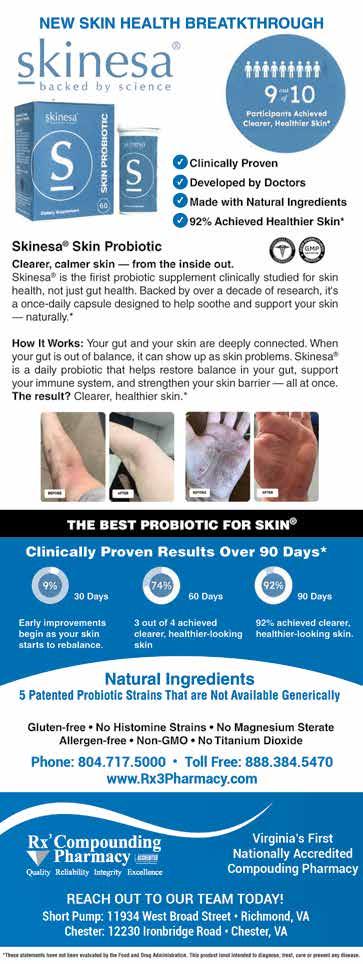
by Ruth Roberts, DVM, CVA, CVH, CVFT, NAN
Cats are often seen as low-maintenance companions, but they may still need supplements to support their health and well-being. The feline supplement market is one of the fastest-growing segments in pet health, with an expected annual growth rate of 8.7 percent through 2029. With so many available options, choosing the right supplements requires careful consideration.
Melissa Sherman, a holistic pet health coach and nutritionist, notes that the increasing interest in feline supplements stems from two primary reasons: a shift toward integrative wellness and a heightened emphasis on the unique needs of cats. “People are looking beyond conventional care and asking what more they can do to help their cats thrive, not just survive,” she explains.

A recent survey of pet parents conducted by market research publisher Packaged Facts reported that 76 percent of dog and cat owners were interested in finding health and wellness products for their pets. Nearly half of the respondents said that they were paying closer attention to their pets’ health in the aftermath of the COVID-19 pandemic.
According to the American Veterinary Medical Association, the number of U.S. households with at least one cat grew from 25 percent in 2016 to 29 percent in 2022. As more families welcome cats into their homes, interest in long-term feline wellness continues to rise. An aging pet population and the growing availability of veterinarian-formulated supplements further contribute to this rising trend.
To promote general feline wellness, Sherman’s top supplement recommendations fall into the following three categories:
1. Immune Support: Medicinal mushrooms such as reishi, turkey tail and shiitake are rich in beta-glucans, which help modulate the immune system and reduce inflammation.
2. Omega-3 Fatty Acids: Marine-based sources such as anchovy or krill are preferable. “Cats are obligate carnivores,” Sherman explains. “It’s essential they receive bioavailable, animal-based omega-3s rather than plant-based sources, which are harder for them to convert.” These nutrients contribute to skin health, joint function, cardiovascular well-being and cognitive performance, making them indispensable for cats of all ages.
3. Emotional Wellness Support: “Cats are deeply sensitive creatures, and their emotional state directly affects their physical health,” says Sherman. “Supplements that support the nervous system, including certain adaptogens or vibrational remedies like flower essences, can be incredibly

helpful, especially for cats dealing with anxiety, transitions or trauma.”
Beyond the foundational supplements, others can be added on a case-by-case basis as specific needs arise. Sherman recommends a comprehensive assessment of the animal’s diet, lifestyle, health history and symptoms, noting, “I evaluate food quality and variety, energy levels, digestion, coat condition and behavior. If the cat thrives on a balanced, species-appropriate diet with no signs of imbalance, supplements may be needed only for foundational support like omega-3s. Life stage and unique needs are also considered. Kittens, seniors, stressed cats or those recovering from illness often benefit from targeted supplementation to optimize their health.”
In cases of chronic kidney disease, hyperthyroidism or taurine deficiency, especially in cats fed home-cooked diets, targeted supplements may be necessary. These situations often require meticulously adjusted nutrient levels and additional support, such as glandulars (organ-based supplements) or adaptogens (stress-modulating herbs), tailored to the cat’s specific condition. In such cases, oversight by a veterinarian and/or nutritionist may be advisable.
Supplements are often viewed as a quick fix for health issues. Without addressing root causes such as poor nutrition or unresolved
medical conditions, supplementation may lead to poor results. In some cases, they may even mask symptoms rather than support true healing. “One of the most important things to understand is that supplements can’t replace a high-quality diet or proper veterinary care. They’re powerful tools, but they work best as part of a holistic wellness plan,” says Sherman.
A common misconception is that more supplements are better. Cats often thrive with less. “Over-supplementation can strain organs like the liver and kidneys and may even contribute to the very issues we’re trying to resolve,” Sherman explains. “Just because something is natural doesn’t mean it’s always safe or necessary. Cats are incredibly sensitive, and even beneficial ingredients can become harmful if used improperly.”
The selection of supplements should be purposeful and precise. Fat-soluble vitamins A and D can accumulate in the body over time and lead to toxicity. According to VCA Animal Hospitals, vitamin A toxicosis in cats, often caused by excess raw liver or supplement intake, can result in joint pain, lethargy, weight loss and skeletal deformities.
When selecting cat supplements, Sherman recommends looking for those made with high-quality, naturally derived ingredients and no synthetic additives or fillers. Choose species-appropriate formulations and brands that employ good manufacturing practices. Companies that share third-party testing results are best.
Exercise caution with essential oils, particularly those incorporated into other supplements, as they can be harmful to cats if not used properly. It is best to work with a professional experienced in essential oil use for animals.
Learn more about Dr. Ruth Roberts’ approach to holistic pet care and wellness at DrRuthRoberts.com.

Two-Month Planner

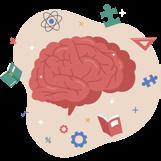
by Christina Connors
In an era when children are growing up in digital landscapes unfamiliar to many parents, establishing connections can feel like navigating a maze. But harmonious living is attainable through small, intentional moments that cultivate trust and emotional safety. Rather than solely emphasizing control or screen-time restrictions, deeper bonds can be created by tuning in with curiosity, presence and empathy. Here are some strategies that parents and caregivers can employ to bridge the gap and foster connection.
“For decades—perhaps centuries—children have received consistent messaging about emotions: control them, contain them and, whenever possible, conceal them. This approach wasn’t necessarily malicious; it reflected cultural values that prioritized stoicism and social harmony. The ‘good child’ was often the quiet child, the composed child, the one who didn’t ‘make a scene’,” says Lee Sowles, founder and CEO of Kind Mind, a program that teaches adults and children how to co-regulate, be kind and feel ready to learn. “When we support our kids’ emotions, we teach them that all feelings are valid—even the difficult ones—and then we can empower them with the skills they need to process emotions in healthy ways. This fosters trust, emotional resilience and a more harmonious home environment where everyone feels seen and safe, which is crucial because children thrive when they feel understood and connected.”
To communicate effectively and foster positive exchanges with our children, it is critical to keep emotions in check. According to Janet Philbin, a clinical social worker, certified conscious parent and life coach, as well as the author of Show Up for Yourself: A Guide to Inner Awareness and Growth, if a child comes to us upset, crying, whining or demanding, the best response is to remain level-headed and attentive.
“Pausing and tuning in allows us to come into harmony because we are moving from a sympathetic state of fight/flight to a state
of calm and presence,” she says. “We are regulated, and our child can come to us with their emotions, feeling safe. We do not react; instead, we become grounded and present, allowing us to meet our child where they are and tune in to what they need, which is underneath the behavior we’re seeing. This is how harmonious relationships are created, because we have regulated our nervous system, and our child can regulate theirs.”
An effective method to foster mutual trust and respect with a child is with a shared journal in which parents and kids are able to


communicate with each other through the written word. “Using the journal creates space to respond from a place of our loving hearts without judgment and putting aside the need to fix,” explains Philbin. “Our children will feel heard and safe, ultimately creating harmony in the relationship.”
Philbin shares how her family makes use of a shared journal, noting, “Our kids write to us about what they are struggling with and leave the journal for us in a safe space. When we find the journal, we take our time to respond to our child. In that response, we can let them know we hear them, that their feelings matter and that their struggle is real. We stay away from solving the problem, and instead just let them know that we are supporting them to work it through. Then we hand the child back the journal, and this process continues.”
Building a robust connection with a child doesn’t require grand gestures. Instead, it is about creating consistent, small moments that build an emotional rhythm. Here are a few suggestions:
• Make it a habit to take screen-free walks after dinner.
• Regularly journal about a common prompt—such as recounting a memorable or unexpected event—and then read the journal entries out loud to each other.
• Find opportunities to share common interests and spend quality time together, perhaps by playing the child’s favorite board game or video game.
Living harmoniously, particularly in parenting, is not solely about achieving balance, but also about cultivating presence. When we approach our children with empathy, curiosity and intention, we do not merely hear them; we genuinely see them. In this act of seeing, connection begins.
Christina Connors is a writer, singer and creator of a YouTube series for children. Learn more at ChristinaConnors.com.



Conscious Eating
by Chloe Karydes Krecun
Microgreens and sprouts are small but mighty, delivering considerable benefits for the health conscious. Whether grown at home or purchased fresh from a local grocer or farmers market, these superfoods make for an easy and accessible way to add texture, flavor and nutrients to everyday meals.
Subtle differences distinguish these two remarkable plants. Microgreens are edible, immature seedlings grown in soil or a similar medium and harvested upon the appearance of the first few cotyledon leaves. Sprouts are germinated seeds that are cultivated in water until they grow into an edible plant. Their roots, seeds and leaves are edible.
“Anyone can grow a small tray of microgreens on a windowsill or around a kitchen counter,” says Katie Staudt, owner and head grower of Meraki Urban Farm, in Chicago. She points out the common misconception that microgreens can only be grown in

a liquid solution. While some do-it-yourself kits employ hydroponic techniques, they are not the most efficient growing method and may lead to mold growth.
“You don’t have to have a green thumb if you have the right information,” says Staudt. Because they can be easily propagated in small trays, microgreens are ideal for small, indoor spaces. She suggests using soilless media made of peat, coconut coir or hemp that allow for proper drainage while holding the right amount of moisture. The plants demand little maintenance and are usually harvested when the greens are one to three inches tall, making them a perfect choice for individuals with limited gardening experience. Staudt recommends beginning with the radish sprout, which can grow and be ready to eat in as little as seven days. Kale, purple kohlrabi, red acre cabbage, bok choi and wasabi mustard sprouts are also easy-to-grow varietals.
Sprouts can be more challenging to grow because they require greater oversight to preserve food safety. It is important to soak the seeds in water and rinse them daily with clean water to maintain a moist environment while also reducing the risk of bacterial growth. According to agricultural experts at Penn State Extension, bacteria in the sprouting seeds “can continue to thrive if proper food handling techniques are not practiced during harvest, processing and preparation.”
The U.S. Food and Drug Administration provides good agricultural practices for growing, harvesting, packing and holding sprouts, which include using clean water, wearing disposable sterile gloves when handling the seeds and sprouts, and cooling the sprouts to 32° F immediately after harvesting. The FDA strongly recommends cooking sprouts thoroughly before consuming them to eliminate harmful bacteria. Children, the elderly, pregnant women and persons with weakened immune systems should avoid eating raw sprouts altogether.
According to Dominique Kline, farm manager of The Hope Farm, in Alabama, “Radish or broccoli sprouts would probably be the easiest ones to start out with at home, just because those are some of the most reliable and have the fastest turnover.” Alfalfa, mung bean and sunflower sprouts are also relatively easy to grow.
According to the U.S. Department of Agriculture, microgreens contain five times greater levels of vitamins and carotenoids than their mature plant counterparts, including vitamins C, E, K and A, as well as beta carotene, lutein/zeaxanthin and violaxanthin.
“You can eat 50 cups of broccoli or a single cup of broccoli sprouts for similar nutrition and benefit,” explains Emily Ho, nutrition professor and director of the Linus Pauling Institute at Oregon State University, in an article published by the American Heart Association.

It is important to understand that these plants’ shelf life is short once they are cut. “The closer they are to being alive, the better they are for you,” Kline asserts. For those that prefer to purchase their produce instead of growing it, local farmers markets or select grocery stores also offer fresh microgreens and sprouts that provide the same nutritional benefits and quality. This can be a convenient way to not compromise on freshness or effectiveness.
Not only are microgreens and sprouts relatively simple to grow, they are even easier to eat. Incorporating them into meals is quite straightforward. Kline recommends adding them to any hot or cold food as an easy nutrient boost. Sprinkle them on salads, eggs or pizza for added texture, contrast and flavor. Arugula and radish microgreens add a delightful peppery flavor, while mung beans offer a milder, slightly sweet experience, and sunflower sprouts lend a nutty flavor to any dish.
Whether enjoyed fresh from a windowsill at home or sourced from a local market, microgreens and sprouts bring nutrient density along with delicious flavors and textures, making them an attractive green to incorporate into everyday meals.
Chloe Karydes Krecun is a sophomore at University of Illinois UrbanaChampaign. Connect at LinkedIn.com/in/chloe-karydes-krecun.


YIELD: 1 SERVING
1 cup frozen organic berries
1 cup coconut water
1 frozen banana
1 oz broccoli microgreens
2 Tbsp hemp seeds or chia seeds
Place all ingredients in a blender and blend until smooth. Pour into a glass and enjoy immediately.
Recipe courtesy of Katie Staudt.

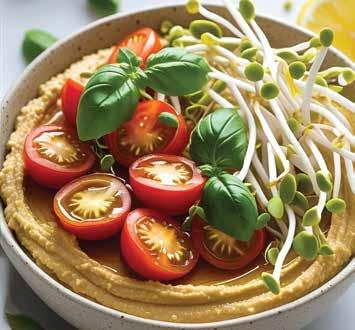
YIELD: 2 TO 3 SERVINGS
1 can chickpeas, chilled and drained
¼ cup tahini
2 Tbsp olive oil
1 tsp lemon zest
4 Tbsp fresh lemon juice
4 Tbsp water
1 tsp tamari or liquid aminos
¼ tsp sea salt or smoked salt
¾ cup sunflower sprouts or mixed sprouts
6 cherry tomatoes, halved
Handful of fresh basil leaves
Combine chickpeas, tahini, olive oil, lemon zest, lemon juice, water, tamari or liquid aminos and salt in a blender. Pulse blender a few times then blend ingredients until smooth. If the hummus is too thick, add another tablespoon of water. Transfer hummus to a bowl.
Add tomatoes, basil leaves and a thick layer of sprouts on top of the hummus. Drizzle everything with olive oil, an extra splash of fresh lemon juice and a sprinkle of tamari.
Enjoy with bread, pita, crackers or spooned over a bed of freshly made quinoa, couscous, lentils or a green salad.
Recipe courtesy of Marlaina Donato. Connect at WildflowersAndWoodSmoke.com.

Make a meaningful impact in your community by becoming the owner of a Natural Awakenings magazine. Empower others with current, valuable insights and resources to enhance their physical, mental, emotional and spiritual well-being.
As a franchise owner, you’ll inspire positive change, provide readers with tools for healthier living and connect local businesses with an audience eager for transformation.
Why Own a Natural Awakenings Magazine?
n Create a Healthier Community: Be the go-to resource for wellness and personal growth in your area.
n Boost Your Income: Take control of your financial future with a proven business model.
n Enjoy a Flexible Lifestyle: Work from home while pursuing a fulfilling, dynamic career.
What We Offer:
n A proven business model with low startup costs.
n Comprehensive training and friendly, ongoing support.
n Flexible work schedule with many work-from-home opportunities.
n Access to a network of like-minded franchise owners.
n Financing Options Available.
Join a thriving network of passionate franchise owners reshaping the future of holistic health and wellness.
Call 239-206-2000 for a FREE evaluation of your community’s potential. Learn more or apply today at: Corp.NaturalAwakenings.com
Add Your Community to Where Natural Awakenings Is Now Publishing:
• Atlanta, GA
• Boston, MA
• Broward County, FL
• Bucks/Montgomery Counties, PA
• Central Florida/Greater Orlando, FL
• Central New Jersey
• Charlotte, NC
• Chicago, IL
• Columbia, SC
• Dallas, TX
• Daytona/Volusia/Flagler Counties, FL
• Detroit/Wayne County, MI
• Fairfield & Southern Litchfield Counties, CT
• Grand Traverse Region/Northern Michigan
• Greater Ann Arbor, MI
• Greater Lansing, MI
• Greater Oakland, Macomb, Livingston, Genesee, MI
• Gulf Coast, Alabama/Mississippi
• Houston, TX
• Jacksonville/St. Augustine, FL

• Lehigh Valley, PA
• Long Island, NY
• Milwaukee, WI
• Monmouth/Ocean Counties, NJ
• Naples/Fort Myers, FL
• New York City, NY
• North Central New Jersey
• North New Jersey
• Northwest Florida
• Palm Beach, FL
• Philadelphia, PA
• Phoenix, AZ
• Rhode Island
• Richmond, VA
• Sarasota, Manatee, Charlotte and DeSoto Counties, FL
• South Central Pennsylvania
• South Jersey, NJ
• Southeast North Carolina
• Space & Treasure Coast, FL
• Tampa, FL
• Tucson, AZ
• Twin Cities, MN
• Westchester/Putnam/Dutchess, NY
• Western Michigan Call for a free evaluation of your community's potential at 239-206-2000. To apply or learn more, visit Corp.NaturalAwakenings.com.
• Lancaster/Berks, PA

by Sandra Yeyati
Lorraine Maita is a triple board-certified physician specializing in functional, integrative and anti-aging medicine. She is the author of Vibrance for Life: How to Live Younger and Healthier. The self-professed “Hormone Harmonizer and Detoxifier” has been featured on national media outlets, including ABC News and Forbes. She has served as chief medical officer at Prudential Financial, medical director of The Pfizer Health Leadership Team and medical director of North America for Johnson & Johnson Global Health Services.
Maita maintains a medical practice in New Jersey and is the CEO and founder of The Feel Good Again Institute, which offers do-it-yourself courses, supplement protocols, strategies, resources, coaching and live classes focusing on bioidentical hormone replacement therapy, weight loss, gut health, detoxification and improving the healthspan. The institute aims to provide health education and self-care options for those that cannot afford or do not have access to functional medicine.
If any hormone level is off, you’re going to feel off. For example, high cortisol levels can drive down other hormones like estrogen, progesterone, testosterone and the thyroid hormones,

causing elevated blood sugar, blood cholesterol and blood pressure; weight gain; puffiness; fatigue; and forgetfulness. In women, estrogen dominance during PMS and perimenopause occurs when progesterone is low or absent, leading to anxiety, irritability, insomnia, weight gain, tender breasts, fibroids, irregular bleeding and physical aches, among other things. Those are just two examples of imbalances.
We always start with lifestyle changes, including diet, exercise and stress management, which help normalize cortisol levels, allowing other hormones to balance naturally. Initially, I’ll run tests to measure the levels of everything, and then we’ll start an elimination and detoxification diet to reduce inflammation, the root cause of illness. I may also add herbs and supplements to decrease inflammation, heal the gut and detoxify the liver.
After this process, 80 percent of people feel good to great. For those that don’t, further investigation into the gut microbiome, mold, metals, infections or other inflammatory diseases may be needed. During menopause or late perimenopause, when eggs are depleted, progesterone and estrogen production may decline, necessitating hormone replacement therapy, as well.

From the time you’re born, toxins accumulate in your fat and bone marrow, and even if you follow a clean lifestyle the effects of toxins can worsen, especially when women start to lose bone in menopause, because those metals and toxins start coming out.
To detoxify, you need to move your bowels every day. You need exercise to release toxins when you sweat and carbon dioxide when you breathe deeply. You need to hydrate to flush toxins through the kidneys. When you exercise the muscles, you bring toxins into your lymph system, which then get pumped into your bloodstream and liver to get detoxified.

What advice do you have for people taking conventional drugs for high blood pressure, cholesterol and blood sugar?
Courtesy Lorraine Maita
change your lifestyle and slow down. Sometimes people need permission to say I don’t have to do absolutely everything on my todo list and drive myself crazy.
Getting enough good-quality sleep is also important. Too many people get to bed too late. They’re on their tablets and phones, and all that blue light disrupts their hormones, so they don’t get a deep sleep, which is where you repair, rejuvenate and restore health, and also restore your hormones.
What advice do you have for people that struggle with cravings?
cravings. Processed foods and simple carbohydrates promote yeast growth and cravings, while fresh fruits, vegetables, lean proteins and healthy fats support beneficial bacteria. Our approach combines detoxification, elimination, a healthy diet and sleep to make gut healing a habit.
When it comes to making lasting changes, what comes first, the emotional or the biological?
Too much cortisol raises your blood pressure, cholesterol and sugar levels. Stress can stimulate your body’s stress reaction, causing cortisol to go up, and that’s why many people are overweight and have high blood pressure, high blood sugar and high cholesterol.
We can measure cortisol very easily. If your cortisol is too high, that’s a wake-up call to
Sugar is as addictive as cocaine, and just like any addiction, you have to stay away from it long enough to stop the cravings. My “15-minute rule” is that you have to distract yourself for 15 minutes to forget about the cravings. Supplements like Lglutamine can help, but the best approach is a minor withdrawal period, such as two weeks, to diminish cravings.
Healing the gut will also help to eliminate
It depends on the person. The biological will drive the emotional and the emotional will drive the biological, and that’s why having a good night’s sleep is important. When you’re tired, you’re going to crave more. When you’re tired, you’re going to be less inclined to move or develop healthy habits.
Sandra Yeyati is the national editor of Natural Awakenings.

To read a longer version of this conversation, visit TinyURL.com/MaitaWW or scan the QR code.



GO TO NARichmond.com/Calendar for current offerings, updates and additional listings. Please double-check with the host prior to an event to ensure the information is accurate.
Please call ahead to confirm date and times

Saturday, August 2
Somatics and Yoga – 9:15-10:30am. Join us on the mat for an exploration of yoga as mindful movement, with the aim of regulating our nervous systems, deepening our sense of embodiment and felt sense, and connecting with our own intuitive movements as a reflection of and to shift our emotional state. Register at InnerworkCenter.org. Innerwork Center, 213 Roseneath Rd. Richmond, VA. 804359-0384. $18+.
Two-Hour Silent Meditation Retreat – 10am2pm. This retreat is designed to help you acclimate to silence and stillness in a very simple and supportive environment and is perfect for beginners. Benefits: increases confidence and curiosity; creates a deeper connection with oneself; enhances self-awareness and mindfulness; and reduces stress and promotes mental clarity. Register at InnerworkCenter. org. Innerwork Center, 213 Roseneath Rd. Richmond, VA. 804-359-0384. $30+.
Monday, August 4
YMCA Heart Healthy Nutrition Seminar: Dash Way of Eating – 11:30am-12:30pm. Ready to take charge of your health and improve your lifestyle? Join us for a free seminar on the DASH Diet (Dietary Approaches to Stop Hypertension) – a proven and effective plan for lowering blood pressure, improving heart health, and boosting overall wellness. In this seminar, you'll discover the benefits of the DASH diet, easy meal plans and practical tips to get started. Whether you're looking to manage your blood pressure, lose weight, or simply eat healthier, this seminar is for you! Please contact the front desk to register or go to Family-ymca.org/bpsm.
Sunday, August 22
Intuitive Circle – Unfolding the Real You: Living From Inner Guidance – 6:30-8pm. In the August Intuitive circle, we’ll explore how success comes from within you. Each of us is born with a unique purpose and all the tools we need to fulfill it. Through guided meditation, intuitive techniques, and sharing, we’ll peel back the layers to reconnect with your inner knowing—the Real You. Discover the subtle but powerful ways your angels help you in your daily life. Join us to regroup, recharge, and experience the power of your inner intuitive guidance. Register at CommunicateWithAngels.com/events Studio D Yoga 9327 Midlothian Tpke., Ste. 1B, North Chester-field. $25.
Carytown Farmers Market – 9am-1pm. Richmond's premier Sunday market, created to provide local farmers, makers and consumers the opportunity to deal directly with each other. City Stadium, 3201 Maplewood Ave., Richmond, VA. CarytownMarket.com. Free.
South of the James Farmers Market –10am-1pm. Shop local produce, handmade goods, and more year round. Forest Hill Park 4021 Forest Hill Ave., Richmond, VA. Free.
Goat Yoga Brunch & Bubbly – 11:30am1:30pm. Pactamere Farm and Goat Yoga RVA are hosting morning goat yoga followed by a delicious brunch with unlimited mimosas. During the 45-minute class, your certified instructor will guide you into a series of poses with the assistance of our 26 Nigerian dwarf goat yogis. Pactamere Farm, 15577 Stone Horse Creek Rd., Glen Allen, VA. Tickets available at PactamereFarm.com. $65.
The Bench – Community Sit (every 4th Sunday) – 4-5pm. Step away from the noise and into stillness. The Bench is a simple gathering for shared silence, open to everyone regardless of experience or background. There is no agenda, no particular style, no instruction, and no expectations. It’s an invitation to simply come as you are, sit in silence, and be. 804-359-0384 Register at InnerworkCenter.org. Innerwork Center, 213 Roseneath Rd., Richmond, VA. Free.
Sunday Sound Meditation – 6:30-7:30pm. Experience the profound effects of sound vibrations as you journey inward on a wave of relaxation and healing. $5-$25 sliding scale. LivingWaterrva.com. 1000 Westover Hills Blvd, Richmond, VA.
Level 2 Flow Yoga – 9-10:15am. Start your week right with a yoga class that is beyond a beginner’s level. Participants will incorporate new poses and increasingly challenging options. $70/4 classes/mo, $20/ drop-in.Glenmore Yoga & Wellness Center, 10442 Ridgefield Pkwy, 804-741-5267. GlenmoreYoga.com.
Ageless Yoga – 10:30-11:45am. A balanced practice that incorporates basic yoga postures, breath awareness and relaxation. Poses are modified to meet individual needs. Students transfer to and from the floor and the class generally includes a Vinyasa flow of standing poses, guided by breath for a portion of class time to increase stamina and strength. Students continue to develop body awareness to keep the joins safe, increasing range of motion and improving balance. Glenmore Yoga & Wellness Center, 10442 Ridgefield Pkwy. 804-741-5267. GlenmoreYoga.com. Navigating Loss With Compassion (Online)
6:30-8pm. During this six-week journey, you will learn how to talk about feelings associated with grief and be offered the opportunity to be cared for and supported to attend to grief. Through vulnerability and release, the heart can be healed, and we can move towards the state of wholeness. Interested participants are required to fill out a pre-screening form, to be reviewed by the facilitator. Register at InnerworkCenter.org Innerwork Center, 213 Roseneath Rd. Richmond, VA. $155+.
Beginner Qigong with Jonah Marsh –5:30-6:45pm. Qigong is an ancient practice which combines graceful movements with abdominal breathing and mindfulness, allowing us to connect with nature and balance the body’s circadian rhythms. Jonah has been studying Chinese internal martial arts and qigong since 2011. $5-$25 sliding scale. LivingWaterrva.com. 1000 Westover Hills Blvd., Richmond, VA.
The Artist's Way – 6:30-8:30pm. This 12-week course is for all who seek to get in touch with their imagination, inner self and playful nature. 804-359-0384. Register at InnerworkCenter. org. Innerwork Center, 213 Roseneath Rd., Richmond, VA. $155+ Scholarships available.
Beginner-Level Yoga – 9-10:15am. Balanced practice that incorporates basic yoga postures, breath awareness & relaxation. Postures modified to meet individual needs. Online & in-person. $70/4 classes/mo, $20/ drop-in. Glenmore Yoga & Wellness Center, 10442 Ridgefield Pkwy. 804-741-5267. GlenmoreYoga.com.
Yoga for Bone Health – 9:45-11am. Increase bone & muscle through the use of yoga with a combination of dynamic & static yoga poses. Chris Riely. $70/4 classes/mo, $20/drop-in. Glenmore Yoga & Wellness Center, 10442 Ridgefield Pkwy. Registration required: 804741-5267 or GlenmoreYoga.com.
Fundamentals Pilates Mat Class (Online) – 10:45am-12pm. This Pilates Mat Class with Dianne Powers will include the basic exercises emphasizing alignment, elongation of the spine and healthy posture. It will focus on the execution of efficient movement achieving improved core strength and endurance. $70/4 classes/mo, $20/drop-in. Glenmore Yoga & Wellness Center, 10442 Ridgefield Pkwy. 804741-5267. GlenmoreYoga.com.
Slow and Gentle Yoga – 11:30am-12:45pm. An in-studio or online class with a yoga therapist. $70 for 4 classes in a month; $20 drop-in. Glenmore Yoga & Wellness Center, 10442 Ridgefield Pkwy. 804-741-5267. GlenmoreYoga.com.
Men’s Grief Discussion – 1:30-3pm (1st & 3rd Tuesday). This group is peer-led, free and a place to listen or share grief experiences with others with similar grief experiences. Open to anyone that has lost a significant other or spouse. Bliley's Funeral Home, 3801 Augusta Ave., Richmond, VA. 804-355-3800.
Mixed Level 1 & 2 Yoga – 5-6:15pm. This Mixed Level 1 & 2 yoga class is both in-studio and
online. End your work day with this yoga class that will move through all the muscles and joints, transitioning from beginner yoga poses into more challenging poses. If joining online, please register in advance to get the Zoom link. $70/4 classes/mo, $20/drop-in. Glenmore Yoga & Wellness Center, 10442 Ridgefield Pkwy. 804-741-5267. GlenmoreYoga.com.
Qigong – 5:30-6:30pm. Qigong refers to movement practices developed in ancient China and literally means energy work or energy skill. Qigong movements are done slowly and in harmony with one's mindintention and breath, fully bringing one into the present moment and fostering an alert yet calm state of mind. 804-359-0384. Register at InnerworkCenter.org. Innerwork Center, 213 Roseneath Rd. Richmond, VA. $17+.
Tuesday Night Gentle Flow into Restoration – 6:30-7:30pm. A nourishing and relaxing 60-minute gentle hatha yoga flow with restorative yoga poses (using props). Suitable for any level, sliding-scale, drop-in & props provided. Leave feeling relaxed, restored & rejuvenated. Like all Living Water classes, this one is sliding scale, $5-$25. Living Water Community Center. 1000 Westover Hills Blvd. LivingWaterrva.com/events.
Yin Yoga (In Studio & Online) - 9-10:30am. This quiet practice with Erin Forsyth, ERYT500, focuses on the deep connective tissue in the lower back, hips and pelvis. Poses are generally limited to seated or reclined. The poses apply passive pressure to the joints, ligaments and tendons and are held for 3 to 5 minutes. While holding, students practice staying mentally attentive by focusing on the breath and to what their body feels in the pose. For the online class, please register in advance to get the Zoom link. Glenmore Yoga & Wellness Center, 10442 Ridgefield Pkwy. 804-741-5267. GlenmoreYoga.com. $20.
Intermediate Flow Pilates Mat Class – 9:1510:30am. A Pilates mat class with a focus on intermediate mat exercises. $70/4 classes/ mo, $20/drop-in. Glenmore Yoga & Wellness Center, 10442 Ridgefield Pkwy. 804-741-5267. GlenmoreYoga.com.
Ageless Yoga – 10:45am-12pm. A balanced practice that incorporates basic yoga postures, breath awareness and relaxation. Poses are modified to meet individual needs. Class generally includes a vinyasa flow of standing poses, guided by breath for a portion of class time to increase stamina and strength. Students continue to develop body awareness to keep the joins safe, increasing range of motion and improving balance. $70/4 classes/ mo, $20/drop-in. Glenmore Yoga & Wellness Center, 10442 Ridgefield Pkwy. 804-741-5267. GlenmoreYoga.com.
Gentle Yoga – 11am-12:15pm. This class features gentle yoga stretches, postures, breath awareness and relaxation to improve flexibility, strength, range of motion, balance and energy. Designed for those recovering from injuries, illness, inactivity or other health considerations. $70/4 classes/mo, $20/drop-in. Glenmore Yoga & Wellness Center, 10442 Ridgefield Pkwy. 804-741-5267. GlenmoreYoga.com.
Vino Vinyasa - 12-1pm. Join instructor Ann Marie Lewis for a strong yoga practice! Rinse out your body and mind with a dose of structural, functional flow yoga at Ashton Creek Vineyard. You are encouraged to stay after class to enjoy some locally produced wine and nibbles! Bring a yoga mat, 2 blocks and a strap. Ashton Creek Vineyard, 14501 Jefferson Davis Hwy, Chester, VA. 804-5365869. $15.
Widow’s Tea Talk – 1:30-3pm (Every 4th Wednesday). This group is peer-led, free and a place to listen or share grief experiences with others with similar grief experiences. Open to anyone that has lost a significant other or spouse. Bliley's Funeral Home, 3801 Augusta Ave., Richmond, VA. 804-355-3800.
Restorative Sound Healing – 6:30-7:30pm. Relax your mind and body with the calming melodies of 432Hz-tuned crystal singing bowls, Himalayan singing bowls, Koshi chimes, shell chimes, tuning forks and more. Register at InnerworkCenter.org. Innerwork Center, 213 Roseneath Rd. Richmond, VA. 804359-0384. $18+.
West African Dance Class – 6:30-8pm. Join an uplifting 60-minute West African Dance Class that includes a cultural overview of the dance being taught, warm-up, and a highenergy blood-pumping workout. Register at Ezibumuntu.org. A New You Wellness Center, 1606 Ownby Lane. Richmond, VA. 804-5920086. $12+.
Small Group Mat Pilates – 8-8:45am. Join Mary Beth Blend, a Physical Therapist with over 20 years of expertise, for an enriching 5-week Experiential Pilates Mat Class series. With a focus on posture refinement and core strength enhancement, you'll learn how Pilates can positively impact your body and overall well-being. SoulShine Studios 9200 Stony Point Pkwy., Richmond, VA. 804-3559593. SoulShineStudios.com/events. $100 for the four-week series.
Vinyasa Flow – 9-10:15am. Join Glenmore Yoga's Randi Weiss, E-RYT 500, for an inperson or online Vinyasa Flow class that incorporates all aspects of a traditional Hatha yoga class – postures, breath & meditation while challenging your coordination through flow. Please register in advance. $70/4 classes/mo, $20/drop-in. Glenmore Yoga & Wellness Center, 10442 Ridgefield Pkwy. 804741-5267. GlenmoreYoga.com.
Chair Yoga – 10:30-11:45am. This online Chair Yoga class via Zoom for older adults offers a balanced yoga practice which incorporates basic yoga postures, breath awareness and relaxation. Students continue to develop body awareness to keep the joints safe, increase range of motion and improve balance. Please register in advance to get the Zoom link. GlenmoreYoga.com.
Fundamentals Pilates Mat Class – 10:45am12pm. This Pilates Mat Class with Dianne Powers will include the basic exercises emphasizing alignment, elongation of the spine and healthy posture. It will focus on the execution of efficient movement achieving improved core strength and endurance. $70/4 classes/mo, $20/drop-in. Glenmore Yoga &
Wellness Center, 10442 Ridgefield Pkwy. 804741-5267. GlenmoreYoga.com.
YOGAbility – 11am-12:15pm. In-studio therapeutic yoga class designed to educate, assess and help you progress in everyday life skills including functional abilities of work, rest and play. Highlighted are abilities of aligned posture, dynamic balance and increased mobility. Glenmore Yoga & Wellness Center, 10442 Ridgefield Pkwy. 804-741-5267. GlenmoreYoga.com. $20.
Online Beginner Yoga – 6-7:15pm. A balanced practice that incorporates basic yoga postures, breath awareness and relaxation. Postures are modified to meet individual needs. Please register in advance to get the Zoom link for this online class. Glenmore Yoga & Wellness Center, 10442 Ridgefield Pkwy. 804-741-5267. GlenmoreYoga.com.
Yin Yoga – 9-10:15am This 75-minute instudio Yin yoga class is a great way to end the week. The quiet practice focuses on the deep connective tissue in the lower back, hips and pelvis. Poses are generally limited to seated or reclined. The poses apply passive pressure (muscularly soft) to the joints, ligaments and tendons and are held for 3-5 minutes. Glenmore Yoga & Wellness Center, 10442 Ridgefield Pkwy. 804-741-5267. GlenmoreYoga.com. $20.
Online Tibetan Rites – 10:30am-11:45pm. The Five Tibetan Rites is a system of exercises reported to be more than 2,500 years old. The Rites are said to be a form of Tibetan yoga similar to the yoga series that originated in India. The Five Tibetan Rites enhance mental clarity and memory, balance the hormones, improve health and support emotional well-being. This is an online-only class; please register in advance to get the Zoom link. Glenmore Yoga & Wellness Center, 10442 Ridgefield Pkwy. 804-741-5267. GlenmoreYoga.com.
Level 1 & 2 Yoga – 10:45am-12noon. This instudio traditional yoga class takes students beyond the beginner level. The class will flow through poses and include more challenging options, ending with a relaxation session. $70/4 classes/mo, $20/drop-in. Glenmore Yoga & Wellness Center, 10442 Ridgefield Pkwy. 804-741-5267. GlenmoreYoga.com.
Saturday
Mixed-Level Yoga – 9-10:15am. Start the weekend off right w/a yoga class appropriate for all levels. Guidance given throughout practice, offering individual students a number of appropriate options. In-person & online. $70/4 classes/mo, $20/drop-in. Zoom. Register, Glenmore Yoga, 804-741-5267 or GlenmoreYoga.com.
Aerial Yoga – 10:45am-12pm. This beginnerfriendly class for adults of all ages combines traditional yoga with the support of a suspended silk hammock. You will be guided through a series of poses and flows designed to strengthen, lengthen, and open the body, leaving you feeling confident, connected, and relaxed. $20 Host of Sparrows Aerial Circus, 97 Manchester Road, Richmond, VA. 804-6150309. HostOfSparrows.com.
Connecting you to the leaders in natural health care and green living in our community. To find out how you can be included in the Community Resource Guide, email Regina@NARichmond.com to request our media kit.
DRS. MAXINE AND JOE ABRETSKI
Omni Family Chiropractic 6806 Patterson Ave. Richmond, VA 23226
804-214-6236

om We specialize in family-based wellness health care, focusing on correcting the structure of the spine and the function of the nervous system. Our goal is to help families live to their healthiest potential naturally. By addressing spinal alignment and nervous system health, we aim to enhance overall well-being and support longterm health!
WELLCOMEMD
2500 Gaskins Rd, Ste A 866-942-4522 · WellcomeMD.com infoRichmond@WellcomeMD.com

Experience concierge medicine with a functional medicine approach. Comprehensive and proactive, limited number of patients, unhurried 30-minute consultations for a personal and effective relationship with your physician. Schedule a discovery call today.
LINDA ZAFFRAM, LCSW, CYT200, PMH-C
Healing Circle Counseling 2819 N. Parham Road, Suite 130 Richmond, VA 23294
804-924-7600
HealingCircleCounseling.com

Linda Zaffram is the founder, owner and CEO of Healing Circle Counseling and Services. Linda’s areas of expertise include adults, women’s issues, depression, panic/ anxiety, PTSD, grief/bereavement, perinatal loss/stillbirth/miscarriage, perinatal mood disorders, maternal mental health, fertility/reproductive issues, NICU families, emotional, physical & sexual abuse, trauma, birth trauma, stress management, relationship issues, life transitions, communication skill building and developing coping skills.
CHERYL DESVERNINE
Braniac Wellness
804-250-3450
BraniacWellness.org

Cheryl is board-certified (BCN) in neurofeedback and has been practicing neurofeedback over the last eight years. We offer neurofeedback, eye movement therapy and traditional counseling to clients ages 6 and up. Neurofeedback is an intervention that improves symptoms associated with ADHD, anxiety, panic, PTSD, trauma, depression and more that is holistic and does not require medication.
NEIGHBORS AND HEROD FAMILY DENTISTRY
Dr. Brian Herod 1009 Crowder Dr., Midlothian, VA 23113 804-794-8745 • MidloDental.com

Dr. Brian Herod centers his holistic dentistry practice on the connection between oral and systemic health. He is a member of the IAOMT, providing an integrative approach to dental care. Safe amalgam removal, metal and BPA-free fillings, ceramic implants, biocompatibility testing, fluoridefree, 3-D cone beam.
NANCY A. POWELL, M.D.
River’s Way Healthcare of Virginia 5500 Monument Ave, Ste T 804-379-4560
RiversWayHealthcareVA.com
RiversWayVA@gmail.com

Offering expanded healing services. Providing traditional primary care and alternative approaches to support the body’s ability to heal itself. Extensive study in the mind-body connection to achieve optimal health. Certified by the Board of Family Medicine and by the American Board of Scientific Medical Intuition.
NAOMI IGUCHI, PHD, LCP, BCN, RYT NeuroFlow Wellness 804-349-3033
Naomi@NeuroFlowWellness.com
NeuroFlowWellness.com

Naomi is a Licensed Clinical Psychologist, Board-Certified in Neurofeedback, and a Registered Yoga Teacher who helps adults break free from cycles of chronic stress, anxiety, inattention, depression and exhaustion. Through her unique method, Embodied NeurofeedbackTM, she addresses struggles at their root—the brain, body, and nervous system—so change is fast, lasting, and medication-free. If you feel overwhelmed, disconnected, or trapped, her neuroscience- and research-backed approach offers a path to reclaim your calm, energy and joy.
REV. CHERYL FARE, MFA, LUT
Certified Enneagram Coach
Ordained Unity Minister CherylFare.com
CherylFare@gmail.com 804-399-1527

The Enneagram is a dynamic system for personal, professional and spiritual growth. Working with an Enneagram Coach opens awareness around personality patterns, creates pathways for relationship connections, and empowers transformation for a happier and healthier life. Sessions available in-person or online. Learn more at CherylFare.com.
AMBER MANCHE, NP – CHRONIC PAIN & NEUROPATHY SPECIALIST Chronic Care of Richmond 8639 Mayland Dr. Ste. 105, Richmond, VA 23294 804-740-7105

Board-certified nurse practitioner and IFM member Amber specializes in treating chronic pain and peripheral neuropathy using non-surgical, root-cause therapies. Chronic pain is addressed with regenerative medicine like PRP, while neuropathy care includes advanced imaging and a multi-modal program. Every consultation includes a team-based approach with a chiropractor and case manager, integrating functional medicine, nutrition and evidence-based care.
DR. MICHAEL WALD
The Blood Detective
4131 Croatan Rd. Richmond, VA 23235
914-552-1442
DrMichaelWald.com

Dr. Michael Wald, known as the Blood Detective, has been in clinical holistic practice for 33 years. Using his Blood Detective Method & software, he analyzes extensive lab data to uncover causes of disease. Dr. Wald offers specialized lab work, targeted nutrition, and lifestyle guidance. He provides lab testing from all areas of medicine at once to ensure a comprehensive health evaluation. The Blood Detective Method allows for targeted natural approaches to optimize health and address chronic conditions. He is also the author of the Anti-Aging Encyclopedia. Dr. Wald’s expertise helps patients take control of their health by identifying hidden imbalances and offering personalized solutions for longterm wellness. See ad, page 7.
VERA DUBOVOY, M.D.
Dubovoy Integrative Health 1404 Starling Dr., Richmond, VA 23229 (Inside the Wellness Village) 757-603-3034
VAIntegrativeHealth.com

Vera Dubovoy, M.D., is dual board-certified in OB-GYN and Lifestyle Medicine. She has over 1,000 hours of training in integrative medicine and functional medicine including health and wellness coaching, nutrition, and herbal medicine. She believes in personalized wellness and nourishing our physical, emotional and spiritual health. She and her husband offer a range of progressive therapies designed to fit the treatment needs of the patient.
PCM INSURANCE AGENCY
Patricia Mayfield
PCMInsurance19@gmail.com 1-800-674-6771

PCM Insurance is your premier destination for Medicare enrollment services. With decades of experience in the industry, our dedicated team of experts is committed to helping individuals navigate the complexities of Medicare with ease. See ad, page 19.
ESCAPE MASSAGE
15500 WC Commons Way, Midlothian 804-794-0445
EscapeMassage.com

We offer a variety of massages including Swedish, Therapeutic Swedish, Deep Tissue, Hot Stone, Aromatherapy and CBD. We also offer energy therapy, reiki and halotherapy services. We have a team of professional, experienced, and caring licensed massage therapists and reiki masters ready to cater to your self-care needs.
NARITA C. SNEAD, MPH, MSN, APN-BC
Certified Medical Cannabis Provider
Adult Nurse Practitioner
Registered Practitioner for Medical Cannabis
804-475-8904
Green-Healing.co

At GreenHealing, we strive to make the process of obtaining a medical marijuana card and locating certified cannabis physicians as easy as possible for our patients.
MAGNOLIA WELLNESS
Regina Rudolph MagnoliaWell@gmail.com
804-495-0325
Wellness-Teas.com

Promoting self-care and disease prevention through the use of our crafted collection of premium wellness teas designed to reduce stress and anxiety, strengthen the immune system, promote weight loss and release harmful toxins. Magnolia Wellness also assists people on their journey to better health and wellness through classes and private sessions. See ad, page 24.
DR. MICAH ALLEN, ND, LAC, FABORM
Essential Natural Health
804-464-3315
DrMicahAllen.com

Dedicated to providing personalized holistic healthcare solutions in Richmond, Virginia. Our practice focuses on integrating time-tested acupuncture techniques with innovative medical
solutions to achieve significant and enduring results for our patients. Specializing in challenging chronic conditions such as peripheral neuropathy, infertility and pain, we strive to help individuals live fulfilling lives. At Essential Natural Health, we prioritize understanding each patient as a whole person. We develop customized preventive and natural medicine health plans for all ages, from pediatrics to geriatrics. Our approach is grounded in harnessing the body’s inherent healing abilities through tailored treatment plans designed to address individual needs effectively.
RX3 COMPOUNDING PHARMACY
12230 Ironbridge Rd, Ste C, Chester 11934 W Broad St, Henrico Ph: 804-717-5000, Fax: 804-717-8300
Rx3Pharmacy.com

RX3, Virginia’s First Nationally Accredited Compounding Pharmacy, has been an industry leader for 23+ years. Specialists in customized compounding, bio-identical hormones, veterinary/equine compounding, traditional pharmacy, palliative care, professional quality supplements, CBD experts, Food Inflammation Testing, and more. See ad, page 17.
DEBBIE TROXELL, RN, MSNH Thermographer The Wellness Village 1404 Starling Dr, Richmond 804-683-7774
RVAThermography.com

Safe, non-invasive, radiationfree imaging. Preserve your breasts, heart health and much more. Live happier and healthier longer! Interpreted by Matthew Lee, MD, RPh. See ad, page 6.
GLENMORE YOGA & WELLNESS CENTER Far West End Location 10442 Ridgefield Pkwy, Henrico 804-741-5267
Info@GlenmoreYoga.com
GlenmoreYoga.com

Incorporate yoga into your life at Glenmore with in-person and online student-focused, multilevel classes from Ageless Gentle, Beginner and Yin to Vinyasa Flow, Restorative and Meditation. 200- and 300Hour Teacher Training. Voted best Richmond Yoga Center.
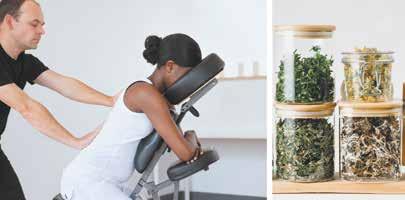




SECURE YOUR SPOT NOW WITH EARLY BIRD SPECIALS.


We are looking for:
• acupuncturists • yoga studios • fitness & wellness centers
• nutritional supplement providers
• herbalists, alternative medicine practitioners
• massage therapists • reiki masters • sports apparel companies
• natural skincare and beauty products
• eco-friendly and sustainable products
• spas • wellness retreat facilities • crystal providers
Location: Dewey Gottwald Center at Science Museum of Virginia
Date: October 11, 2025
Time:12-4pm
Learn more, visit NARichmond.com/pages/healthfest or email Regina@NARichmond.com